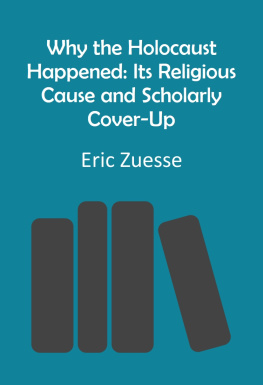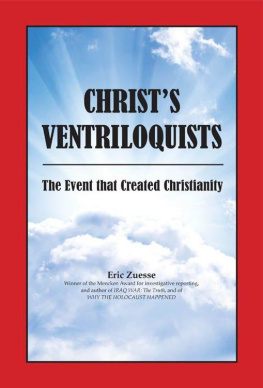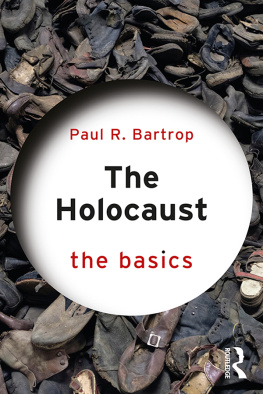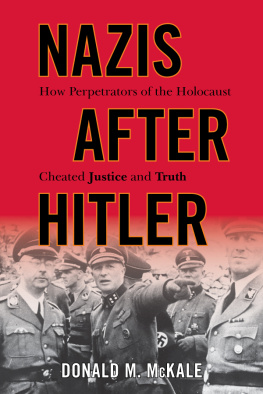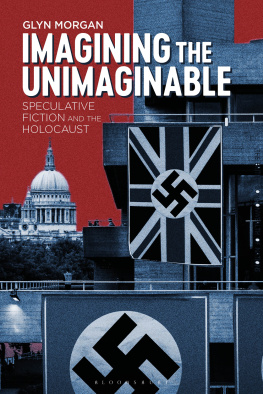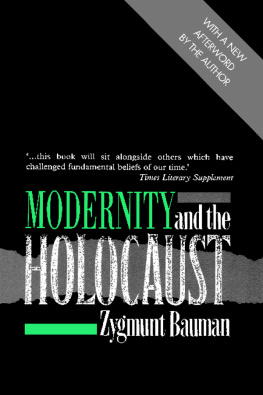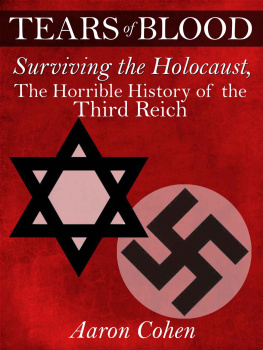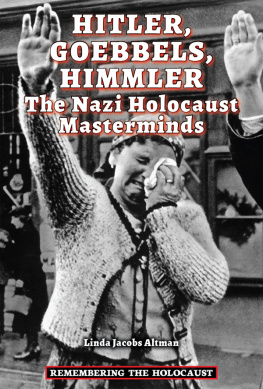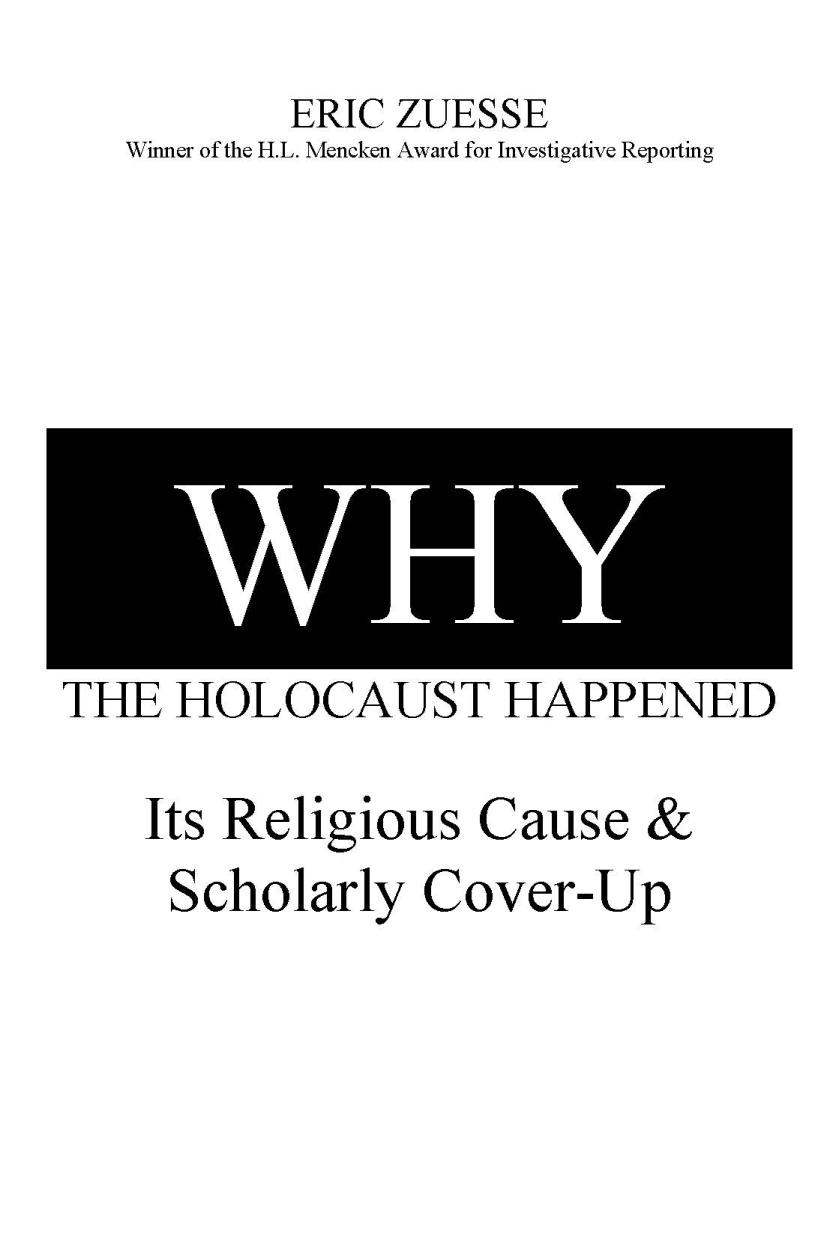
Eric Zuesse is a cultural anthropologist, general systems theorist, economist, and investigative journalist. He has been published by Dell Publishing Company, Crown Publishing Company, The New York TIMES, REASON, JOURNAL OF ECONOMIC BEHAVIOR, GENERAL SYSTEMS THEORY, and others. Zuesse is a winner of the H.L. Mencken Award for The Years Best Investigative News Report.
The Bible is history told as religion tells it. WHY The Holocaust Happened is history told as science tells it. No longer is the challenge to the religious account just Copernicus and Galileo - the Bible got the cosmology wrong. No longer is the challenge to the religious account just Darwin and Mendel - the Bible got the prehistory (i.e. evolution) wrong. Now it is history itself that is at stake; the final fig leaf covering the old myth is ripped away; and what stands exposed this time is rape. Peoples minds have been raped by a false historical account; and now we know both why it lied, and that the Holocaust was its result.
Never again.
Dedicated to the victims.
I almost shudder at the thought of alluding to the most fatal example of the abuses of grief which the history of mankind had producedthe Cross.
Consider what calamities that engine of grief has produced!
John Adams, letter to Thomas Jefferson, September 3, 1816
* * *
The teachings of Christ have laid the foundations for the battle against Jews as the enemy of Mankind; the work that Christ began, I shall finish.Adolf Hitler, speech to his followers, December 18, 1926
Contents
Preface 11
PART I: Hitlers Holy War Against the Jews
A Map of the Argument 24
1: The Problem 27
2: Hitler the Mystery-Man 33
3: Bible 53
4: Mission 67
5: Collateral Damage 84
6: Church Response 95
7: Historical Background 100
8: Hitlers Medievalism 108
9: Anti-Science 121
10: The Cover-Up by Scholars 127
PART II: Where the Bibles Anti-Semitism Came From
A Map of the Argument 146
11: Our Methodological Approach 149
12: The Pre-Pauline Background 154
13: Summary of the Case 161
14: How the Scientific Approach Differs from the Religious One 171
15: Pauls Detailed Account of Christianitys Split from Judaism 176
16: Christianitys War Against Judaism 190
CONCLUSIONS
17: Bringing It All Together 216
18: Of Smoking Guns and Hot Bullets 229
19: Completing the Work of Nuremberg 241
20: Policy-Implications 244
Appendix 1: Hitlers Essay, My Theory of Eugenics 254
Appendix 2: Random Thoughts on Causation 277
Acknowledgments, and Why I Wrote this Book 353
Index/References 356
Preface
Why did the Holocaust happen? Of all unexplained historical events, of all Mans irrationalities, is there any that so challenges our understanding? Man has not yet come to terms with the most-systematic and vast genocide in history. Testimony to this sad fact has been provided by each subsequent genocide, all mocking the prevailing platitudes about the brotherhood of Man. Perhaps the failure to understand the Holocausts cause has contributed to the ineffectiveness of prevention-efforts, as well as policies after the fact, in places such as Cambodia, Bosnia, and Rwanda, where subsequent ethnocides have occurred. Indeed, how would it even be possible to prevent genocide if the cause of one so vast as the Holocaust remains a mystery? With more than a half-century separating us from the Holocaust, we still have not answered the most basic question: why it occurred. Thus, younger generations of Gentians, both Christians and Jewsas well as the ethnic minorities new to the countrycontinue even today to debate the issues of guilt. After all this time, the Holocaust remains an unsolved riddle.
The implications of this failure reverberate throughout the world, but perhaps nowhere more so than in Europe, the home of the Holocaust. On 2 April 2000, European Affairs correspondent Sylvia Poggioli, on National Public Radios Weekend Edition program, brilliantly summed up the looming dangers of Europes failures in this regard by pointing to a recent resurgence there of majority assaults against minorities. She reported a continent slipping back toward racial chaos eerily reminiscent of events that were thought and hoped to belong only to the past, and that were consequently of ominous portent for the future:
The most recent case was a four-day rampage in southern Spain against Moroccan immigrants, but theres racist violence everyday, everywhere: in Birmingham, in Frankfurt, in Florence, in Copenhagen, in Marseilles. A typical site is soccer stadiums. In Britain, in France, and in Italy, you can see ultra-right-wing fans carrying banners with pro-Nazi and anti-Semitic slogans, and often Black players in the field are booed and insulted. Whats shocking is that xenophobia is gaining acceptability. The populist parties that embrace anti-immigrant platforms are gaining popularity everywherenot only in France and Austria, but also in Switzerland, in Belgium, in Denmark, and in Norway.The wave of xenophobia has begun to affect the traditional attitudes of many ruling leftist and center-left parties. Voters who used to form the backbone of leftist parties are now attracted to these right-wing anti-immigrant slogans, so governments are introducing political restrictions against immigrants.In Denmark, for example, the ruling Social Democrats have made requirements for family reunification very, very difficult.I found everywhere I went, in Italy, in France, in Germany, in Sweden, and in Austria, immigrants live almost exclusively in closed enclavesghettos, whatever you want to call them. For example, in Sweden, 1 saw one community outside of Stockholm where the only blue-eyed Swede was the security guard. In Lyons in France in the downtown area, which is the heart of the City, I never saw anyone who wasnt white. And its a country with a large immigrant community from its former colonies, but I never saw [an immigrant as aj policeman or anchor on TV. And in Germany, most members of the large Turkish minority live in neighborhoods that are known as little Istanbuls.
Ms. Poggioli was asked by the interviewer to explain the possible causes of the problem. The first to be raised was the standard explanation: hard economic times. Ms. Poggioli, however, quickly rejected this:
Racism and xenophobia are strongest in the most affluent of European countriesin Austria, in Switzerland, and in some Scandanavian countries. More than anything, I think that Europeans believe that its their cultural identity that is being threatened.Modern European states were built on the idea of mono-ethnicity. Europeans are not shocked by the idea of ethnic division and partition. This is also the reason why right-wing parties have succeeded in creating an image of immigrants as an underclass of undeserving members of society.Recent polls show that xenophobia is gaining respectability. Over two-thirds of those polled admitted to being a little racist, and 33% admitted they were very racist or quiet racist. There are also many much more worrisome signs, what former Swiss President Ruth Dreyfuss called the return of the repressed in European politics. She meant that all of a sudden we see an acceptance of ultra-right-wing language and platforms that have been rejected since World War II, and this made me think about what I believe is Europes dirty secret: its continuing reluctance to come to terms with the worst crime ever committed against humanity, and which happened on its territory by Europeans against Europeans half a century ago, the Holocaust. And I think its this reluctance by Europe to come to terms with its past that makes it much more difficult for it to confront its new racism.
Next page
